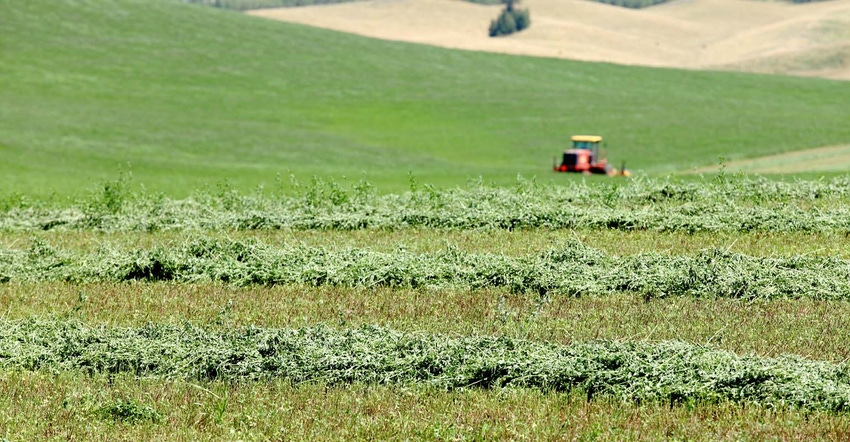May 30, 2018

Five research projects were chosen for funding in the National Alfalfa and Forage Alliance’s second round of research funding through the U.S. Alfalfa Research Initiative, better known as the alfalfa checkoff.
“We are extremely pleased with the response to our second request for proposals and the continued results of our checkoff funding,” said Beth Nelson, NAFA President. “Our Review Committee focused checkoff funding on those projects it believed to have the greatest potential for positively impacting alfalfa farmers’ future.”
The projects:
Use of Alfalfa in Crop Rotations to Control Herbicide-Resistant Pigweed - John Jennings, University of Arkansas
Do FAE-Producing Microbial Inoculants Improve Fermentation and Improve Digestibility of Stored Alfalfa Forage? - Dennis Hancock, University of Georgia
Developing a Soil Bioassay for Alfalfa Autotoxicity - Kim Cassida, Michigan State University
There’s an App for That! Validating Real-Time Assessment of Alfalfa Nutritive Value - Krishona Martinson, Craig Sheaffer, University of Minnesota
Evaluation of the Efficacy of Herbicide Tank-Mixes and Sequential Applications for the Control of Plantain (Plantago ssp.) in Alfalfa - Leslie Beck, New Mexico State University
NAFA’s USAFRI request for proposals generated 15 research projects from a broad geographic area, stretching from Georgia to Washington to Arizona. Proposals addressed a wide range of topics intended to drive innovation and profitability in the alfalfa industry - from integrated pest management and pollinator protection to improving alfalfa silage fermentation.
Project funding was determined by a NAFA board-appointed panel which reviewed, scored, and discussed proposals to determine which best met NAFA’s established research priorities, including:
Emerging Technology for Use in Alfalfa Forage;
Yield Improvements;
Fertility, Soil Management, Soil Health, Macro/Micro Nutrients;
New Uses and Market Development;
Forage Quality Improvements;
Feed Value Consistency (i.e., digestibility, sampling); and
Agronomic Management.
Additionally, proposals were scored on methodology and analytical approaches; industry need; cost effectiveness; partnerships; and outreach.
Source: National Alfalfa and Forage Alliance
You May Also Like




